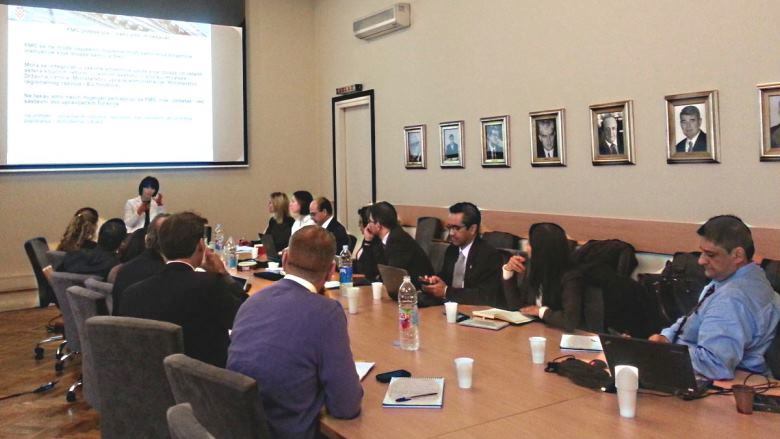The Central Internal Audit and Financial Control Harmonization Unit of the Croatian Ministry of Finance recently hosted a study tour for a 14-member delegation from Brazil. Members of the Brazilian delegation currently hold leading position at the state internal audit and internal control systems. This tour, conducted from February 29 – March 4, was sponsored by the World Bank.
The objective of the visit was to exchange knowledge and best practices in the development of internal control systems at the state and local levels in Croatia.
As part of this ongoing knowledge exchange, representatives of the Croatian Ministry of Public Administration participated in a World Bank seminar on the Brazilian systems of internal control and audit in the public sector In May, 2015. There they presented Croatia’s experiences in this area.
As a result, the Association of the Public Sector Internal Control Agencies of Brazil (Conselho Nacional dos Orgãos de Controle Interno, CONACI) asked the World Bank to organize a study tour to Croatia and Bulgaria so they could learn more about their experiences. The World Bank financed the study tour through the South-South Knowledge Exchange instrument.
Ms. Danijela Stepic, Head of the Sector for Harmonization of Internal Audit and Financial Control (Central Harmonization Unit) gave introductory remarks about general aspects of the systems in Croatia.
Based on the interests of the delegation, the Ministry of Finance organized presentations around three topics:
- Croatia’s experience with internal control systems (including roles, responsibilities, and the historical development of the Central Harmonization Unit);
- legal framework (including cooperation between internal and external audit training for internal auditors and the process of licensing, training in the area internal controls, strategic and annual planning of internal audits, quality assessments of internal audit activities, professional career development of internal auditors); and
- managerial responsibilities in the public sector (including the fiscal responsibility system, the budgetary system, financial and budget supervision, the role and responsibilities of the State Audit Office).
Presentations were given by experts from the Ministry of Finance’s Central Harmonization Unit, the State Treasury, the Directorate for Combatting Error and Fraud, the Sector for Financial and Budget Supervision, the Internal Audit Service, the State Audit Office, the Ministry of Public Administration, and the Ministry of Entrepreneurship and Crafts.

